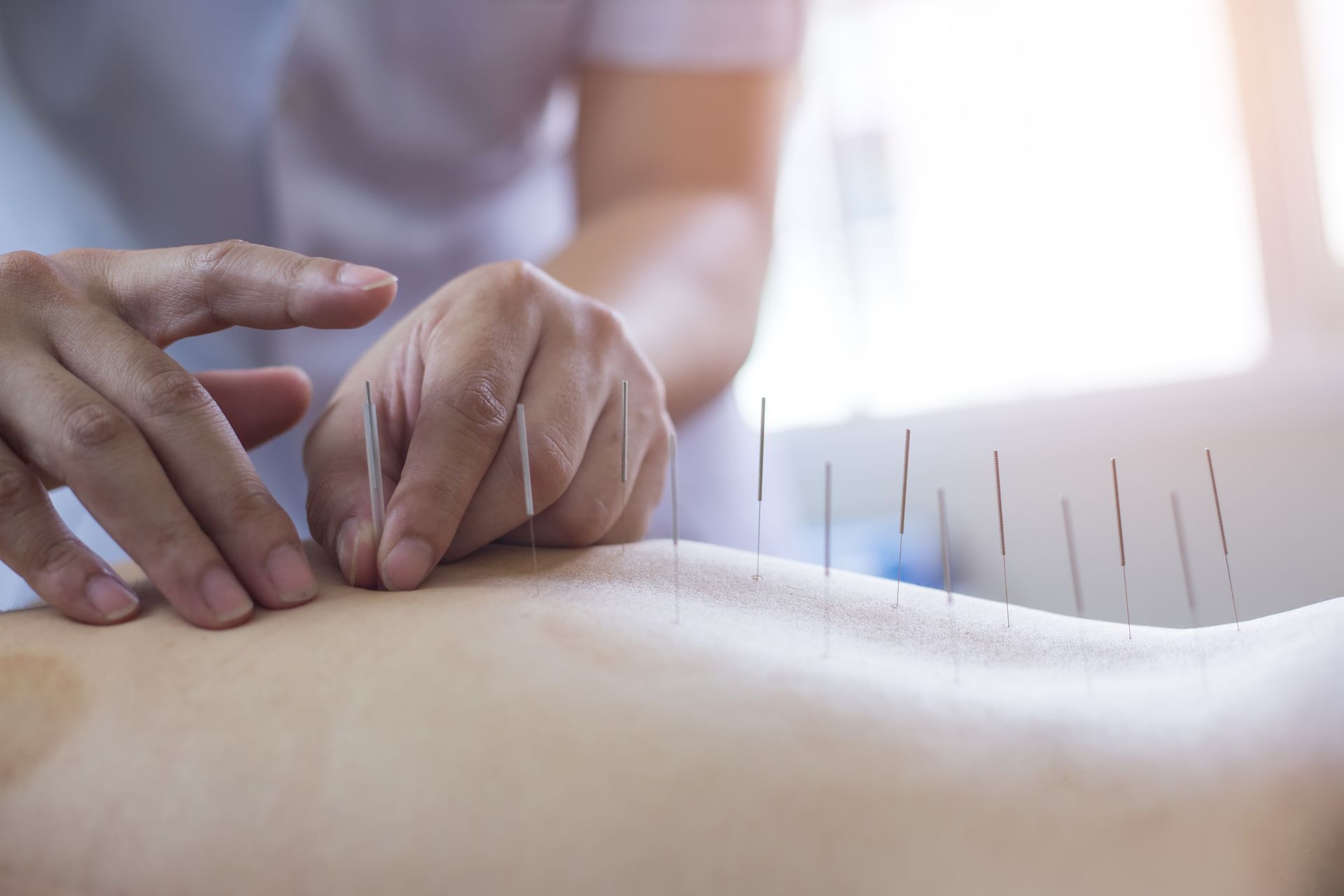Chinese Medicine for Promoting Fertility
Supporting egg health is important for every woman who is preparing for conception, naturally or with ART (Assisted Reproductive Technology). There are many things you can do to help support and protect your egg health, but not many people know the potential benefits of Chinese medicine for fertility. Chinese medicine offers a holistic and time-honored approach that complements conventional treatments. By embracing the potential benefits of Chinese medicine in their fertility journey, women can take a proactive and balanced approach to nurturing their egg health, fostering greater hope and confidence on their path to conception.

What is Chinese Medicine?
Chinese Medicine also known as Oriental Medicine (OM) is one of the oldest medicines in use today. The main goal is to restore and maintain balance in the body. This is why it is effective with fertility. Chinese Medicine aligns the body to give it the power to create an environment that is inviting for an embryo to fertilize, implant, and develop.
Why is Chinese Medicine Effective for Fertility
Studies have shown that Chinese Medicine can help improve fertility and reproductive health in several ways. It can balance the endocrine system to regulate the hormones that stimulate ovulation in women with amenorrhea (no periods) and polycystic ovarian syndrome (PCOS). Oriental Medicine regulates blood flow to manage endometriosis pain and thicken uterine linings that are too thin for conception. Treatments regulate menstrual cycles for women whose cycles are too long or short and give relief to premenstrual symptoms. Mental and physical stress are known to negatively affect fertility. OM can reduce stress and its associated symptoms such as headaches, neck pain, insomnia, and so on.
Connection of Your Kidney and Poor Egg Quality
One of the most common issues for infertility is poor Egg Quality. In this case, other signs can be present such as poor circulation, cold hands and feet, low energy, and feeling cold. In Oriental medicine, this can be due to the Kidney energy deficiency. The Kidney is the root for the reproductive system, and works with the heart to produce ovulation and menstruation. It is the same concept like Hypothalamus-Pituitary-Ovarian axis to regulate the body’s natural hormonal production.
Women are born with a set number of follicles which contain immature eggs. We call “Kidney essence” the material basis for the formation of life. Women’s eggs do not have an “expiration date.” They respond to their surroundings just as the rest of our body system. However, they are less responsive with a hormonal fluctuation, not age. If you can create a better condition, like enough nutrients and blood flow to your reproductive system, the quality of the egg can change. The cycle of the egg’s journey toward ovulation is around 90 days, and during this time, many factors may impact the health of eggs: weakness of the reproductive system, environmental factors, and emotional stress, etc. Understanding what causes the body’s energy to be depleted or hormonal decline can help restore youthful energy, and essence.
Oriental Medicine Approaches to Fertility
Therefore, a different pattern of Acupuncture, Chinese Herbs, and Chinese Medicine approaches can help the maturation of your eggs, and increase blood flow to the ovary and uterus which can be a better environment. The egg’s maturation process is continuous, and only one dominant follicle ovulates each month, so you can start acupuncture at any time and it will be beneficial, however, there is advisory on specific timelines to start before TTC.
For increasing egg quality, eat a nutrient dense diet with
supporting supplements such as antioxidants, multivitamin,
CoQ-10,
Myo-inositol,
L-Arginine,
DHEA, DHA and EPA. These egg quality supplements with acupuncture and Chinese Herbs can increase blood circulation to the reproductive system. Additionally, acupuncture can reduce stress and increase sleep quality, benefiting the autonomic system to balance the hormone, and better the quality of eggs. Oriental Medicine offers a comprehensive array of approaches aimed at optimizing fertility, including:
Acupuncture
It is advisable to begin acupuncture with a licensed practitioner three months before attempting to get pregnant. We can use these three months to ensure your hormones are functioning properly and find when you’re ovulating so you can accurately time intercourse. In my practice, I see women once weekly until she gets a positive pregnancy test and continue once per week for the first trimester to reduce the risk of miscarriage. Acupuncture can support trying to conceive naturally, women going through IUI cycles, and during IVF cycles. And the amazing thing is you don’t have to wait for a certain time in your cycle to get started and it is great for men’s health as well!
Herbal Therapy
Herbal formulas are a specific combination of plant and mineral compounds. When combined the formula produces similar effects as acupuncture. This is something an OM practitioner would prescribe for you to do at home. It comes in the form of a pill or a tea. In doing this, the herbs will enhance the effects of the acupuncture so you respond quicker.
Warm Your Belly
The lower abdomen stores the energy battery or “fire” in OM. Some cases of infertility can be from “cold” in the uterus. Gently warming your abdomen during the time after your period until ovulation could help. In my office we use “moxibustion to accomplish this. It is made from Mugwort whose properties allow it to penetrate deeper and move blood more effectively in the lower abdomen as opposed to conventional heat methods such as a heating pad. You can also try Fertility Enhancing Massage as an add-on to your acupuncture treatment!
OM Diet
Certain foods help nourish the body during the different phases of your menstrual cycle.
Foods that nourish from menstruation until ovulation include fruits like raspberries, pineapples and grapes; vegetables like asparagus and beans; adequate proteins, especially fish; and organ meats such as kidneys, brains and hearts. Also, avoid spicy, pungent foods.
Foods that nourish after ovulation until the start of menstruation include warming foods like ginger, ginger tea, beans; grains, and vegetables like mustard greens, winter squash, cabbage and kale. Avoid cold foods and drinks like ice water or ice cream. Talk to your acupuncturist about this during your consultation. You may also benefit from further exploring nutritional and supplementation supports with a registered dietitian on the team as well.
Pulling Down the Moon’s Specialist in Acupuncture and Chinese Herbs
Stephanie Marynus supports patients at our Chicago office on Wednesdays and Saturdays from 7:30am-3:30pm and virtually via TeleTCM on Thursdays from 7:30am-12:15pm. She would love to support your journey! Learn more by calling our center at: 312-321-0004 Monday through Saturday!
Stephanie is a licensed Acupuncturist and board certified Chinese Herbalist. Driven by the energetics of natural healing, she graduated with a Master of Science in Acupuncture and Oriental Medicine from National University of Health Sciences. As a practitioner, her focus is with fertility, gynecological conditions, and psycho-emotional concerns. Stephanie takes into account the mind, body, and spirit to address her patient as a whole and refine their concern to the underlying cause. She creates personalized treatments that include a combination of acupuncture, herbal medicine, manual therapy, and lifestyle modifications. In addition to her primary job functions, Stephanie has been recognized by the National Certification Commission for Acupuncture and Oriental Medicine (NCCAOM) for her extraordinary commitment to providing preventative, complementary, and alternative medical care. When not with her patients you can find Stephanie shooting imaginary Spiderman webs with her two nephews, cheering for the Cubs, or onto her next neighborhood exercise adventure.
Meet Tamara Quinn
View Profile: Co-Founder of Pulling Down the Moon
Tami, the Co-Founder of Pulling Down the Moon, played a pivotal role in transforming the care provided to women facing infertility. After a corporate career, she sought balance and meaning through yoga and ancient healing practices, eventually leaving the corporate world. Tami became a registered yoga teacher (RYT), immersing herself in mystical yogic traditions such as Kriology and Ayurveda. She also attained the status of a reiki master, a disciple of Kriya yoga, and an ordained Swami. Utilizing her extensive training, Tami creates fertility rituals, meditations, and yoga classes tailored to women dealing with infertility, some of which are highlighted in her co-authored book, "Fully Fertile, A 12-Week Plan to Optimal Fertility." Her journey remains ongoing as she continues to learn from her Guru and her students, demonstrating a deep commitment to her path.
Share on Social
Discuss With Us
Our Latest Resources




